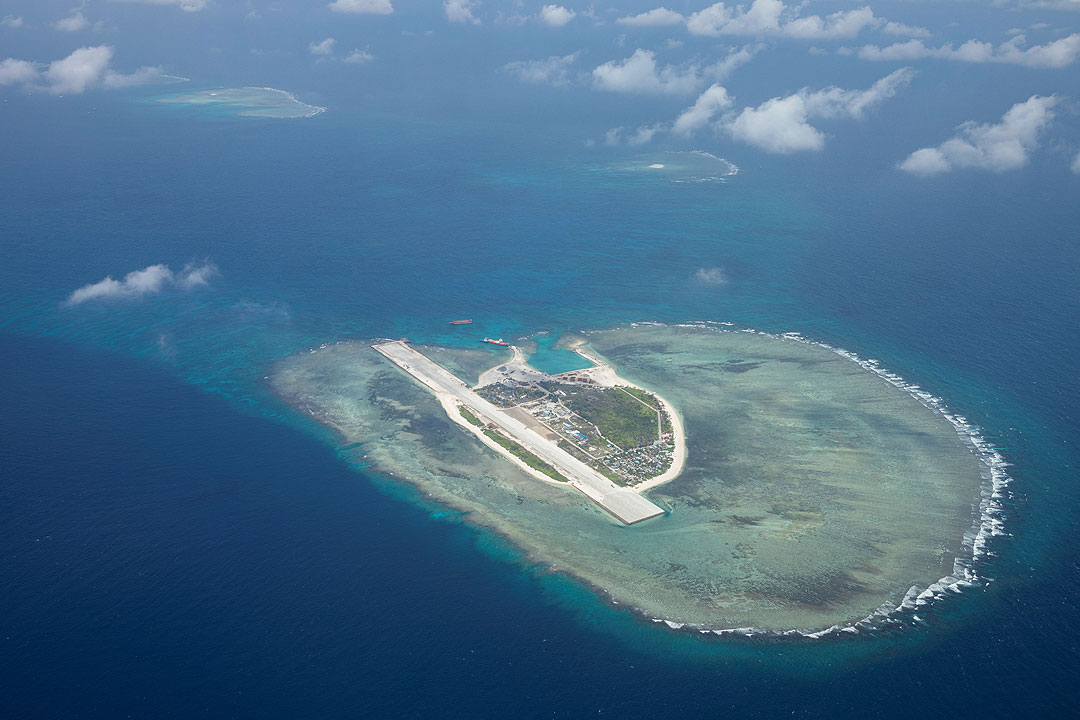Manila eyes putting sea dispute with China in Grade 10 syllabus

By Kyle Aristophere T. Atienza, Reporter
THE PHILIPPINE Education department is considering teaching Grade 10 students about a United Nations-backed arbitral ruling that voided China’s sweeping claims over the South China Sea.
A draft guide of the revised K-12 curriculum includes “Islands in the West Philippine Sea” under a lesson on territorial and border conflicts in the social studies subject for Grade 10 students.
Meanwhile, a lecture on the historic 2016 ruling that largely favored the Philippines in its sea dispute with China will be under a lesson on responding to economic challenges.
The Department of Education (DepEd) has called on the public to review the revised curriculum lessons for kindergarten to Grade 10 until May 3.
The Permanent Court of Arbitration in the Hague, Netherlands in July 2016 affirmed the Philippines’ sovereign rights in areas within its exclusive economic zone that are being claimed by China.
It also voided China’s claim to more than 80% of the sea based on a 1940s nine-dash line map.
Earlier this month, Chinese Foreign Minister Wang Wenbin called the arbitral ruling “illegal, null and void.”
“China’s position of not accepting or recognizing it is clear and firm,” he told a news briefing after Manila and Washington issued a joint statement highly critical of China’s aggression at sea.
Mr. Wang said “the so-called arbitral award on the South China Sea gravely violates international laws, including UNCLOS (United Nations Convention on the Law of the Sea).”
The Department of Education’s (DepEd) plan to include lessons on the country’s sea dispute with China and the Hague ruling would help “promote a unified narrative in our maritime and territorial claims in the West Philippine Sea,” said Chester B. Cabalza, founding president of Manila-based International Development and Security Cooperation, referring to parts of the sea within the country’s exclusive economic zone.
‘REFLECTION’
“Early appreciation for the UN arbitral award on Philippine maritime entitlements can teach us a lot ranging from strategic culture, geography, history, politics, economics, law and foreign relations,” he said in a Facebook Messenger chat.
He said the move would help young Filipinos understand the Philippines’ “maritime and geopolitical ordeals” and how Filipinos confronted China using international legal instruments “that made it a landmark case in the world.”
“This legal victory paved the way for the Philippines to rise as a middle power in the region,” he said. “Putting it in the curriculum paves the way for discussions in the classroom and the story being written in our textbooks.”
DepEd should consult members of the Philippine contingent that helped litigate the case and drafted the Philippines’ legal position, Mr. Cabalza said.
Security analysts who did studies and wrote about the matter and journalists who chronicled the events before and after the arbitration award should also be consulted.
It’s important for the Education department to seek the help of experts in crafting the lessons, policy analyst Michael Henry Ll. Yusingco said in a Messenger chat.
“DepEd should not rush this,” he said. “This is a totally welcome decision of the administration, but they have to be utterly deliberate about designing the course.”
“The lessons shouldn’t be too pedantic. The facts should be complete and unadulterated,” Mr. Yusingco said, adding that events that led to the arbitration award should also be discussed.
“The course cannot be just about the case but also the entire story behind it. In this regard, DepEd must seek the help of historians and journalists who covered this issue.”
Mr. Yusingco said DepEd should also train teachers in teaching the lessons. “This matter can’t be subjected to regular classroom discussion. Teachers must be trained to not only present the facts, but they must also be able to facilitate reflection and discussion.”
Jerwin Baure, public information officer at scientist group AGHAM, said lessons should discuss calls for demilitarization of South China Sea areas claimed by the Philippines, and the consequences of military exercises done by both China and the United States in the area.
DepEd should also tackle alternative regional policies including proposals to make the South China Sea a marine peace park, he said in a Messenger chat.



